Eric Johnson is a truly amazing guitarist. But while he certainly has the ability to blow you away with six-string flash and speed, he’s much more about feel, tone, and serving the song.
Such an approach allowed his 1990 guitar-heavy album Ah Via Musicom to become a crossover hit, selling over one million copies. This album included his signature song “Cliffs of Dover” and other gems like “Trademark” and “Righteous”. Other acclaimed albums followed, most recently the 2017 album Collage.
Johnson is revisiting Ah Via Musicom on tour, joined by Kyle Brock on bass and Tommy Taylor on drums, both of whom played on the original album and toured with Johnson after the album first took off. This interview was for a preview article for noozhawk.com for the tour’s 1/24/18 concert at the Majestic Ventura Theater. It was done by phone on 1/8/18. (Max Crace photo)
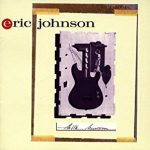
Jeff Moehlis: I’m excited that you’ll be playing Ah Via Musicom at your upcoming concert. What are your reflections on that album now?
Eric Johnson: You know, I don’t listen to it that often, but I have been listening to it to re-learn some of the songs and stuff. It’s a cool record. It’s definitely “guitar city”. I think it was put together well. It’s got a vibe. Kyle and Tommy added so much to it. Man, I’m lucky that they’re going to be on this tour with me. It’s cool. We’re going to have a good thing happening there. It has a nice flow to it. It’s interesting to listen to it because it’s from so many years ago.
JM: What made this the right time for you to revisit that album on your tour?
EJ: We polled people on the website, and a lot of people were like, “You know, a lot of groups are going out and they’re playing their favorite records live, back to back.” And I said, “Oh, really?” Because I’d never done that before, and I said, “If I did that, what record?” And they said, “You should go out and do Ah Via Musicom.” So I said, “OK, that’s a neat idea. I can give that a shot.” So that was how that happened. It was just asking other people what they’d like to hear.
JM: Of course that album has your signature song, “Cliffs of Dover”. How did that song come together?
EJ: I had written that around the time of the Tones record, which was my first released solo record. We had recorded it but it was decided not to release it. We had an outtake of it. So I already had the tune.
That was one of those tunes that was kind of a gift from the universe. I don’t even know if I really wrote it. The melody’s kind of reminiscent of some old Irish melodies, anyhow. I guess I’m fortunate I never got sued. It kind of came to me in five minutes, the whole song. It’s like it dropped out of the sky or something.
We didn’t use it on the Tones record, but it was a favorite live when we played around in the ’80’s, so I said, “I’m going to give it another chance.” I spent a long time getting a complete version of it for Ah Via Musicom. I turned to the engineer after we listened to it and I went, “Nah, it’s no good. I’m going to start over and redo it.” [laughs] So I totally re-recorded it a second time, and that’s the one that’s on the record.
And then when we finished it, in the mix it was so bass-heavy that it sounded really bizarre. It was even hard to decipher the listenability of it. But when I gave it to Bernie Grundman for mastering, he totally re-EQ’d it and it came back and just sounded way better.
It was just kind of a destiny thing. It happened when it happened, and I re-recorded it to get the right vibe and then Bernie saved the EQ. Things just fell in place.
JM: Another great instrumental on that album is “Trademark”. Same question – how did that song come together?
EJ: That was just some guitar riffs and bits and pieces that I assembled over a few months period. It took a while on that one. It was kind of a jam song that we did live, and it morphed over the couple of years that I was playing it live.
JM: Ah Via Musicom came out during a golden age of guitar playing, and not long after that suddenly there was grunge and alt rock, that sort of stuff. Were you a fan of any of that music?
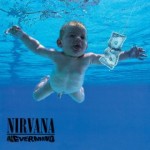
EJ: I mean, if it was good songmanship, that’s kind of what attracted me. Like Nirvana had great songs. I enjoyed them. To be honest, I enjoyed them more than other groups from that time. I heard songwriting with them. It was like there were compositions written there, and then there would be the other stuff with that. So it sounded more interesting to me. I would say that they were my favorite one from that period. The other ones sounded to me like somebody jamming chords and just amping a vocal melody over it. I didn’t hear a song as much. But that’s just me.
To me, it’s about the song. I think people are welcome to put as much musicality as they want into the vehicle, but that vehicle needs to be a song of some sort, in some way. Otherwise it can be interesting on a mental level, but it doesn’t hit you in the heart, it doesn’t affect your heart, like “Pow!”
It’s like you listen to the radio and they’re playing this song and that song, and then all of a sudden some song comes out that’s such a great composition. You just go, “Why are we even listening to this other stuff?”
I ask people, “What do you like about the older musicians?” The biggest answer is, “They can play their instrument.” They don’t put it together piece by piece.
The other day I was listening to the radio and they were playing this bro-country song, and then they played this modern thing, and then all of a sudden they played “Eleanor Rigby”. And I was just like, “My God, the difference.” It’s not necessarily style or era or anything, just the depth of the intention of the musical composition. It’s like, why are we even listening to all this other shlop? It’s like listening to somebody playing “Chopsticks”, and then Mozart comes on. That is kind of judgmental, and I do think that a lot of new music is great. But there’s this thing. It’s like, “Man…”
JM: Since Ah Via Musicom you’ve released about a half dozen other studio albums. How does your approach to songwriting and recording differ now from how it did back in those days of the Ah Via Musicom album?
EJ: The songwriting still happens the same way. It’s just stuff that comes to you naturally, and somewhat effortlessly and quickly. The hard part is trying to bring it into reality, the arrangements and working with the musicians and getting it on tape and to get a good thing. But the actual composition – the best ones are ones that just come, they flow out of you. Every time I try to stress out about it or labor over it, it just sounds that way. Now, what I’m trying to do is pay more attention and respect to honor that mode and that transference, and really be a little wary of the other one. Because on a lot of my records I’m sitting there going, “No, no – this should be good. This should sound right.” You sit there for weeks trying to make it, and then it sounds like you were stressing over it.
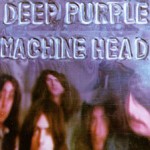
JM: I had the pleasure of interviewing your old friend Christopher Cross about three years ago. He told me a crazy story about Deep Purple coming to Texas and Ritchie Blackmore being sick so he filled in. He also said that your band opened that night. What do you remember about that night?
EJ: Yeah, that was when I met Chris. Which is funny because a few years ago they asked one of the guys in Deep Purple, “Do you remember that time this guy sat in with you?” And the guy said, “That never happened. We never did a gig like that.” And I just had to laugh because he totally did a gig like that. I totally remember it.
It was at the last minute. There was this guy named Joe Miller at JAM Productions who did a lot of the huge shows in Texas. Chris worked for Joe, and Chris was a really good guitar player. Back then, Chris had like crazy long hair and a beard, he played a Flying V. He was like a total rocker. He was nothing like his records. He was like a crazy rock dude. And he actually was a huge fan of Deep Purple. He knew every single song they did. So Ritchie got sick from food poisoning and he was in the hospital. They didn’t want to cancel the gig. I was in a group called Mariani. This is like 1970 – I was 14 years old or something. So I met Chris that night and he used my amplifier, and we just hit it off and became friends. But he went out there and he knew all their songs. He played the gig and everything.
And he talked to Ritchie about it after that. Other people in Deep Purple will say, “No, that never happened.” But Ritchie said, “No, it totally happened.” He remembered being in the hospital and everything.
JM: Do you wish that you would’ve gotten that chance to fill in for Ritchie?
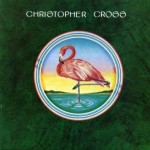
EJ: Yeah. I liked Deep Purple, but Chris was the guy because he knew every single song of theirs. I didn’t really know their music very well. I was a fan of their music, and I was excited about playing that show. I remember we ended up playing longer than usual because they were backstage trying to figure out their song list for the night, because what Chris knew and that kind of deal.
JM: What advice would you give to an aspiring musician?
EJ: Just to follow your heart, and become very focused and hard-working in whatever you find joy in, and the passion. Find the type of music that really inspires you and gives you joy, and makes you want to practice, and makes you want to work on. Don’t step outside yourself and think about what you’re supposed to do, or what somebody else is doing, because then you won’t have the same energy to practice hard and to be focused. If you find whatever excites you and is your passion, then you’re not really working. You might work really hard, but it’s not work.
JM: A lot of people view you as a guitar hero. Who are your guitar heroes?
EJ: Jimi Hendrix would definitely be one of them, because he was such a great musician, and he had a great message of music. It wasn’t, “Hey look at me play guitar!” I mean, maybe he had the stage antics in the beginning, but it was so different than what guitar evolved to in the late ’80’s and ’90’s. I mean, his second record is almost all rhythm guitar – you know, Axis: Bold As Love is really all about songs and lyrics and rhythm guitar. He was really very brave in his musicality, I think because he had a bigger picture of being a songwriter and a musician, and all the way I play guitar.
And then definitely Wes Montgomery, because he just had such a heart to his playing. To me, he’s by far the greatest jazz guitarist that there ever was.
JM: What are your plans for the near future? Are you thinking of recording some new stuff?
EJ: Yeah, I have a whole bunch of new music that I want to get to. We did release a new record last month. And I’m trying to work on a whole bunch of new ideas that I have.
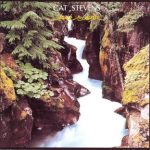
JM: One more thing. I noticed that you played with Cat Stevens way back when. What was that experience like?
EJ: Well, it was pretty short-lived. I just played on one record, and we rehearsed for about three weeks for a tour that never happened. It was at the very end of his career when he decided to denounce it all and become Muslim and not play music. He stayed that way for many years. I think in the last few years he’s done music. So I was kind of at the tail end for him. He was kind of like, “I don’t know if I want to do this anymore,” because I think he was interested in exploring spiritual things.
But it was cool. I would’ve like to have been more involved in it, and maybe seen something happen when I felt like I could’ve helped him more. But I never really had an opportunity to really get involved and be of assistance or help. It was just, “Come in and do these couple of songs in the studio, and then let’s rehearse for the tour.” Then three weeks into the rehearsals it’s like, “Ah, we’re not going to do the tour.”
JM: Well, things worked out fine for you in the end, right?
EJ: Yeah.

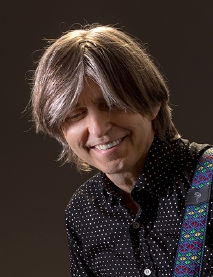
Discussion
No comments for “Interview: Eric Johnson”